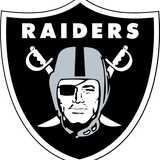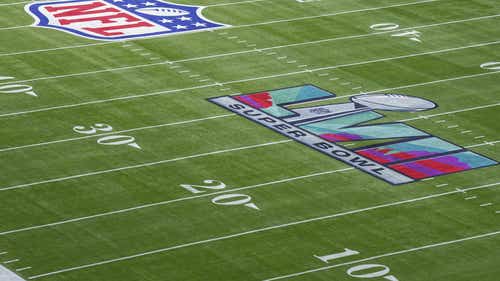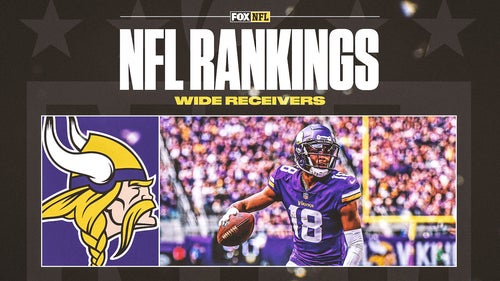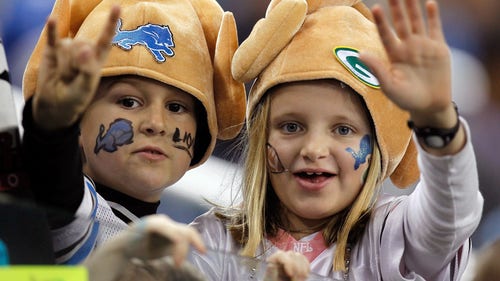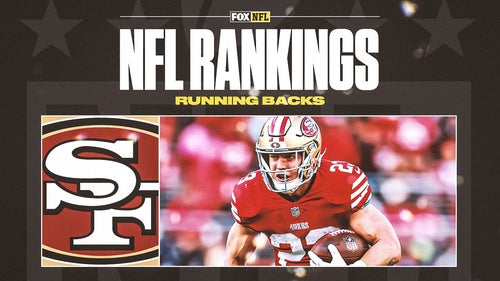
Oakland is the place to be, unless you're a professional sports franchise

OAKLAND, Calif — To walk through this town — "The Town" — is to be engulfed by blue and yellow. You can't take two steps without running into something — a hat, a mural, a banner, a bus — that reminds you that you're in the home of the Golden State Warriors.
For the last 18 months, as the Warriors have completed their amazing metamorphosis from one of the NBA's laughingstock franchises into arguably the best team in all of professional sports, Oakland has been Dubs crazy.
And why shouldn't it be?
The Warriors might be the Bay Area's NBA team, but the team unquestionably belongs to Oakland, where the franchise has played its games for 43 of the last 44 years.
With all this attention surrounding the Warriors, Oakland isn't all that keen to share the team it supported through sporadic good times and the more frequent and much longer doldrums. The Warriors' success is felt in San Jose and San Francisco and everywhere in between, but the feeling is stronger in Oakland and the East Bay.
There's a bond between this city — a diverse, blue-collar town that was once the epicenter of the Black Power movement — and its basketball team, which, much like the city, has been on a tremendous upswing in recent years.
That bond isn't permanent though. The Warriors are planning to leave East Oakland's Oracle Arena — the NBA's oldest venue — and move across the bay to San Francisco and a new, state-of-the-art facility near the water in the coming years.
The Oakland Raiders and A's might be following them out of The Town soon thereafter. The Raiders haven't made a secret out of their search to move to a city that would give them a new stadium on the cheap, and the A's have an out clause in their lease with the city that would allow them to leave the cavernous and antiquated Oakland-Alameda County Coliseum in 2018.
There's deep irony to Oakland's professional sports predicament. Oakland is now the Bay Area's latest boomtown, and yet it could lose three of its most recognizable companies.
Oakland — long maligned as one of the most dangerous cities in America, and according to one presidential candidate, the world — is the new high tide of Silicon Valley — the home of Pandora and soon 2,500 Uber employees.
In the same way San Francisco took on young tech professionals looking to escape the high rents of San Jose and the Valley, Oakland has become the affordable and hip solution for those feeling the crunch from "The City," where a two-bedroom apartment now rents for an average of $5,000 a month and is increasing in price at roughly 15 percent annually (a slowdown.)
Property values have doubled in Oakland in last five years, tech employment is increasing at a rate as high as 10 percent annually, and Oakland is attracting major tech corporations to set up shop in the East Bay.
All the while, it's repelling three sports franchises worth a combined $3.5 billion.
All three of Oakland's teams play alongside Interstate 880 in East Oakland. The Oakland-Alameda County Coliseum was opened in 1966 and has been the home of the Raiders and A's for the better part of the last 50 years. The next-door Coliseum Arena, now called Oracle Arena, opened in the same year.
Both facilities, owned jointly by the city of Oakland and Alameda County, received much-needed renovations, costing a combined $321 million in 1995 and 1996.
The renovations were enough to entice the Raiders to return to Oakland after a 12-year stay in Los Angeles.
But 20 years later, those renovations are no longer enough — all three teams want new facilities — and Oakland, despite its new boom economy, doesn't have enough to pay for new arenas.
Even if the city did have the cash, they wouldn't use it on new buildings. According to Oakland's most recent budget, it and Alameda County still have outstanding obligations of $89 million for those now-antiquated renovations from the 1990's.
The political leanings of the region don't help the team's cases for new, publicly funded stadiums either. The San Francisco Giants attempted to secure public funding for a new stadium for the better part of two decades — at one point coming up only 2,000 votes short — but eventually built their current home, AT&T Park, with private funds in 1999.
The 49ers thought they could secure the public funding the Giants didn't. They found it 40 miles south of The City in suburban San Jose. The construction of Levi's Stadium included $114 million in public funds and nearly $1 billion in loans taken out by a shell corporation set up by the city of Santa Clara.
The landscape remains so toxic towards public funds for stadiums that the Warriors didn't even bother asking if Oakland would help build the franchise a new, state-of-the-art arena.
The Warriors wanted to move to San Francisco, in part to increase accessibility and comfort for the high-roller clientele from The City and Silicon Valley the team has acquired in its rise, and in part to cash in on the city's worldwide recognition by building the arena it lacks. The Warriors might play in Oakland, but on nationally televised games, those back-from-commercial shots around the town are usually of cable cars and the Golden Gate Bridge. Visiting teams don't even stay in Oakland. It's hardly a rare occurrence for Warriors' opponents to miss pregame shootarounds because the team bus was stuck in traffic on the Bay Bridge. Oakland might be on the up, but it'll always be San Francisco's ugly little brother.
The $1.4 billion Chase Center is expected to open in San Francisco's Mission Bay neighborhood, just south of AT&T Park, in 2019, though that date could be pushed back as the team continues to fight through San Francisco's notorious bureaucratic red tape and the threat of legal action by a well-funding group that opposes the building.
There's a growing belief from Oakland fans that the Warriors won't leave in the next five years — a belief that the challenges in building an arena in San Francisco, even one that's privately financed, will prove too much, and they'll eventually build their basketball palace in Oakland — but that's unlikely to be the case.
Those inside the Warriors organization take to the company line when asked about the new arena's hangups. It's uniform, and a bit hubristic, but it's yet to be proven wrong: The Warriors want San Francisco desperately, and under this ownership group, headed by Joe Lacob and Peter Gruber, the Warriors get what they want.
The Oakland Raiders and A's don't have the money to build themselves new stadiums, and they can't go across the bay to tap into the more lucrative corporate marketplace of San Francisco while maintaining their current fanbases, like the Warriors plan to do.
On top of that, both the Raiders and A's have found Oakland to be less-than-responsive to their calls for new stadiums.
The Raiders, in particular, have found vocal opposition from city and county leaders, a fact that isn't unrelated to a clear lack of respect for team owner Mark Davis, who inherited the franchise when his father, Al, died 2011.
Neither the Raiders or the city have presented a viable stadium plan to keep the team in Oakland, despite spending the entire decade discussing the subject.
Negotiations remain open, but frigid, and Davis has focused his attention on finding the Raiders a new market to call home.
Davis worked closely with San Diego Chargers owner Dean Spanos on a joint bid to move their teams to a publicly funded stadium in the Los Angeles suburb of Carson, but that bid fell apart when the NFL allowed the Rams to move to Los Angeles and gave the Chargers the right to share the Rams' new stadium in exchange for dropping the Carson plan.
Davis was left in the lurch — the mark of an elaborate scheme executed to perfection by the NFL's 31 other owners and their elected official, commissioner Roger Goodell.
It's hard to take Davis seriously. The haircut alone is enough to make one wonder, but he also drives a customized minivan, wears a fanny pack, uses the PF Chang's bar as his "office", and was a Tuesday regular at Hooters for all-you-can-eat wings until he was told by his doctor to eat better. Yet, through nothing but a birthright, this man in charge of a $1 billion NFL franchise.
The NFL did give Davis something for being the chump in its scheme to get a team (or two) to Los Angeles — the league is willing to pay $300 million to help build a new stadium in Oakland. It's a tremendous amount of money, but it's not nearly enough to build the Raiders a new stadium in the East Bay.
That's because Davis' income is directly tied to the team. He's worth a reported $500 million, but that's solely based on the valuation of the Raiders. He has no personal wealth to throw into building a new stadium.
The city of Oakland is in a slightly more flush situation, but they have no interest in giving tax dollars to a professional sports team, particularly one owned by Davis.
Oakland might be on the up, but the city still faces serious problems — public schools are among the worst in the state; crime, while decreasing, is still a major concern across the town; and the new wave of tech jobs and rapidly increasing property values has made affordable housing for longtime residents one of the city's most pressing issues. Oakland is not a rich city, and it's prioritized those issues over handing Davis the $400 million he said the city should pay for a new stadium.
The Raiders have looked into San Antonio — no go — San Diego, should the Chargers move — again, no go — and Las Vegas, where casino magnate Sheldon Adelson is keen to build a 65,000-seat domed arena.
"[Davis] has no idea what he's doing," Steven Tavares, who covers Oakland and Alameda County politics for his site, the East Bay Citizen, said. "He's waiting for someone to hold his hand on this thing."
Adelson might be that man who will hold Davis' hand, but there are massive hoops to jump through with financing — the Raiders have pledged to fund less than half the overall cost of the proposed $1.1 billion stadium in Las Vegas — and then there's that whole sports gambling thing, a big red flag for the NFL.
But the Raiders and Oakland are rarely talking these days. The city is entrenched in its stance that it won't publicly fund the stadium — if it were to spend money on a new facility, mayor Libby Schaaf has stated it'd be for the A's, which play 10 times as many home games per year — and the Raiders aren't capable or willing to foot the whole bill on a modern facility on par with the rest of the league.
The city is ready for the Raiders to follow the Warriors out of town. Oakland politicians have done the PR analysis, Tavares said, and while losing the team would hurt their standing with many in the community, taking a stand against public subsidies for an NFL team would play well — especially in an area this progressive.
"This is an uncommonly intelligent region, and many believe that a new stadium is exactly what we don't need," Tavares said. "They think they'll be a hero to other cities — chase 'em out the door. They think they'll be a hero to all local governments — 'no, I'm breaking up with you.'"
Nothing can happen with the A's until the Raiders' situation is settled, and given Davis' inability to progress on his own, that might take a while.
The A's have eyed a move to San Jose for the better part of a decade now. The city of San Jose even sued Major League Baseball to allow the team to move to the South Bay. In October, the U.S. Supreme Court refused to hear the city's appeal of a decision that upheld MLB's territorial rights rules.
The territorial rights put San Jose in Giants territory, making it off limits for the A's unless the Giants ceded the territory. The move to San Jose is off the table.
And now that the legal action has ceased, no one seems to have any idea what the A's will do.
Lew Wolff has been the public face of the A's ownership group, despite being a minority owner, but he's taken a backseat to majority owner John Fisher in recent weeks when it comes to the stadium. Fisher, the son of the founder of the Gap, owns 80 percent of the team but has been stingy with spending, despite a reported personal worth of $2.3 billion. It's unknown how much Fisher is willing to pay for a new ballpark.
The city and the A's haven't reached a stage where money is being discussed. The two are still working to find an appropriate site, but until the Raiders make a move and the city can focus its entire attention on keeping the A's, the Coliseum will be home.
Should the Raiders continue to be in neutral, as is expected, the A's will reach an opportunity to break their lease before a new ballpark plan is reached. Would Montreal, Portland, or even, as commissioner Bob Manfred suggested last month, Mexico City prove better options?
The sound of jackhammers ring out in downtown Oakland as the sun rises. On one uptown block of Telegraph avenue, near Uber's soon-to-be offices, there are five different construction crews working on separate buildings and projects.
The Town can't keep up with the demand of people and businesses coming from across the bay and across the world to live in the town that has fairly earned a reputation as San Francisco's Brooklyn, with its vibrant culture and tight-knit sense of community.
The Warriors, Raiders, and A's are a big part of that sense of community. A part that could soon, much like the stadiums in East Oakland, be vacant.
